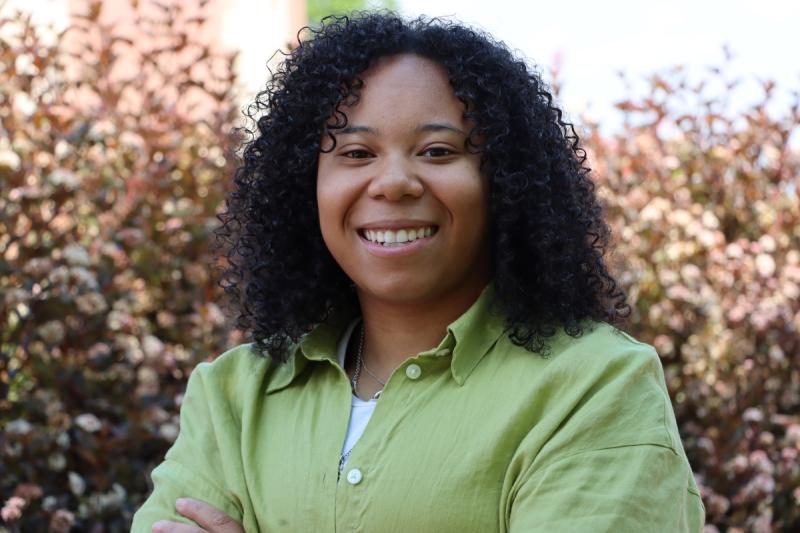Black Studies Minor Offers Journalism Student Deep Dive into African American History, Cultural/Racial Understanding

CAHSS student Kalea Carter. Photo by Hannah Fulk.
Kalea Carter will make history as the first student at the University of Denver to graduate with a Black studies minor this June. Carter, a journalism major in the Department of Media, Film & Journalism Studies with an additional English minor, discovered the Black Studies Program, part of the College of Arts, Humanities & Social Sciences (CAHSS), during her junior year when Black Studies Director Sheila Carter-Tod introduced the program as a possibility for Carter in an English course.
"I always have been intrigued by American history," Carter said. "I don't think Black studies is something that's really talked a lot about, so I thought this was my opportunity [to learn]."
For her final capstone project, Carter worked one-on-one with Carter-Tod, researching the Black press in the 1920s and how African Americans communicated during that era. As the only student completing the capstone, she developed a close mentorship with Carter-Tod that reshaped her approach to research and journalism.
"She changed my life and restructured [my thinking on] how I did research," Carter said.
The interdisciplinary nature of the Black Studies Program has transformed Carter's career aspirations. Through her research, she discovered that many traditional journalism skills originated from Black press publications like "The Crisis" and "The North Star." This revelation helped her identify her goal of becoming an advocacy-focused journalist and community communicator.
Carter credits Lynn Schofield Clark, professor in the Department of Media, Film & Journalism Studies (MFJS), as another key mentor who supported her pursuit of the Black studies minor and connected her with networking opportunities, including the Colorado Association of Black Journalists. MFJS Professor Kareem Raouf El Damanhoury also influenced Carter's goals related to multimedia journalism through intensive editing and storytelling training.
"I do see myself working as a communicator because I think that's the best part of it all," Carter said. "Words are important, [but] they are hard for certain people and things can get misrepresented."
Looking back on her four years at DU, Carter describes undergoing a "complete 180" transformation: "I found a lens that I want to see the world through," she said. "My understanding of the world has completely changed."


